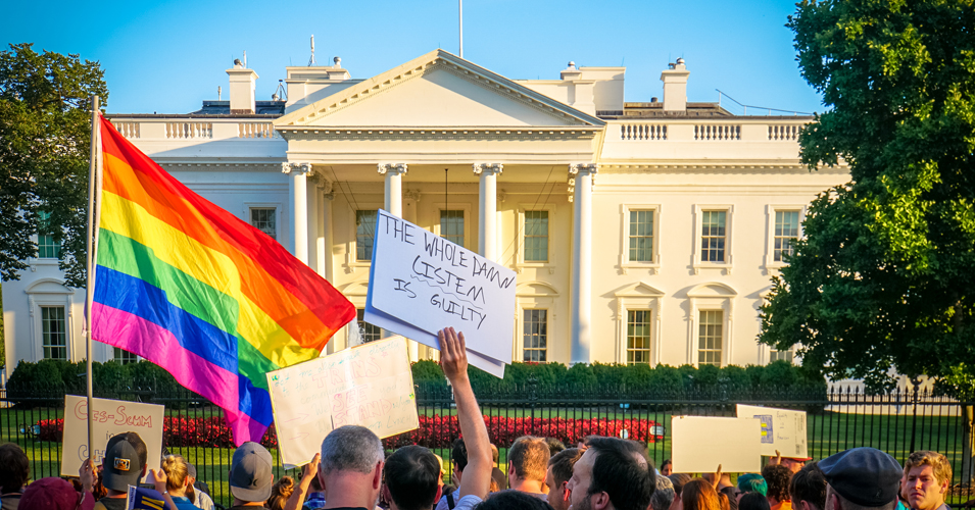Equal protection under the law has been denied to many LGBTQ members in our country for far too long. The newly proposed Equality Act is a vital bill that aims to amend the existing Civil Rights Act to include protections for these communities marginalized on the basis of gender, sex and sexual orientation.
Unfortunately for the LGBTQ community, the issue of religious freedoms has yet again been used to delay the passage of the comprehensive bill. It is time for opponents of the bill to understand that discrimination against this community of Americans is not excusable under any religious or spiritual stance.
In the state of Florida, changing political dynamics have resulted in the shifting of policy views in several key districts.
Most notably, several prominent Miami House of Representative Republicans have voted against the bill, strengthening their conservative stances following the 2020 election in which Donald Trump received increased support from their constituents.
Among the Republicans who opposed the bill was Rep. Mario Diaz-Balart. Diaz-Balart had supported a previous version of the Equality Act in 2019 but changed his position after citing the bill’s lack of protections for individuals and groups who may object to serving the LGBTQ community.
In a statement to the press, Diaz-Balart explained that he changed his stance on the Equality Act because House Democrats “doubled down on some of the most troubling issues [in the bill], including sabotaging religious freedom.”
Republican Reps. Carlos Gimenez and Maria Elvira Salazar of Miami also cited similar concerns when voting against the bill. Gimenez stated that although he would support a state-level bill on LGBTQ protections, the Equality Act “strips First Amendment rights from religious institutions, including churches and religiously affiliated private schools.”
Every Democrat in the House of Representatives voted in favor of the bill on Feb. 25. They were joined by three Republicans to ensure the passage of the bill through the House. However, this clear partisan divide on the issue of human rights is another example of increasing polarization in public policy along with the detrimental influence of external religious organizations on the government.
Florida has historically been laggard in passing and implementing laws that protect its LGBTQ constituents. In fact, to this day, the Florida state statutes do not recognize same-sex marriage, no matter where the marriage was completed. Although this law was voided by the Supreme Court case in 2015 that banned state restrictions on same-sex marriage, the persistence of this wording in our laws highlights the need for national, not local, reform.
Additionally, despite the support that Gimenez and other local representatives offered in favor of a state-wide anti-discrimination bill, theFlorida Competitive Workforce Act has yet to be passed in Florida. This bill would extend protections to all Floridians and prevent evictions and denial of business services due to gender identity or sexual orientation across the state.
The move to pass the Equality Act draws many parallels to the fight to legalize same-sex marriage that was upheld by the Supreme Court in 2015. Both movements were opposed by hard-right religious organizations and conservatives who believed that such sweeping policy would infringe upon states’ rights.
In hindsight, we now know that both groups had little to fear by extending this basic privilege to people regardless of sexual orientation. Religious freedom still thrives in America and federalism has not been swept under the rug. Instead, millions of Americans are now free to love and marry their partners without fear. Asking that the same liberties afforded to heterosexual Americans be extended to all Americans is a simple matter of human rights, not the overreach of government that many opponents claim it to be.
It should be clear that discrimination against the LGBTQ community should be condemned in all forms. Political leaders who fail to do so are simply intolerant and inhumane. Yet just as important is protecting access to religious beliefs and practices. So, let’s ask ourselves, what does it mean to have religious freedom?
The landmark Supreme Court case Lemon v. Kurtzman established a three-prong test to determine the constitutionality of any legislation considering religion. The statute looks at whether a law:
- Has a significant secular (i.e., non-religious) purpose,
- Does not have the primary effect of advancing or inhibiting religion, and
- Does not foster excessive entanglement between government and religion.
The primary purpose of the Equality Act is to ensure protections for the LGBTQ community, a community that has been oppressed and marginalized for centuries; to offer these Americans the same protections that have been offered to their cisgender peers for decades; to give them an opportunity to live the same lives and enjoy the same freedoms regardless of who they love or how they feel about their identity. Few other laws come to mind with a more significant secular purpose than the Equality Act.
The second prong of the Lemon Test has been more hotly debated, but a closer look shows that protections for LGBTQ members in the Equality Act do not endanger or inhibit religious freedoms. In our modern society, we have looked past many religious teachings in the name of tolerance and progress. For example, we do not stone adulterers nor do businesses deny service to divorced couples. We do not allow discrimination based on religion, and thus we have acknowledged that intolerance in the name of religion does not constitute religious freedom. The Equality Act rests on those principles.
Opponents of the Equality Act also fear that the passage of this bill will lead to a slippery slope of increased government intervention in their religious lives and that they will be stripped of their most basic rights.
Reps. Diaz-Balart, Salazar, and Gimenez all voted against the Equality Act for very similar reasons, yet their vote contradicts the choice of 75% of Floridians who voiced their support for fully inclusive LGBTQ protections and put their religious beliefs aside.
What these Representatives have failed to realize is that LGBTQ members in our community have been stripped of basic human dignity for decades, without any form of political support, and that these communities deserve the same respect and dignity afforded to their peers.
The Equality Act was never about increasing government control or inhibiting religion; it is about protecting the most vulnerable from centuries of intolerance, and the time has come for us to ensure equality for all members of our communities.
Featured image: Protestors gather in support of the Equality Act in front of White House. Unmodified photo by Ted Eytan used under a Creative Commons license. (https://bit.ly/3lTVRNz)
Check out other recent articles from the Florida Political Review here.





